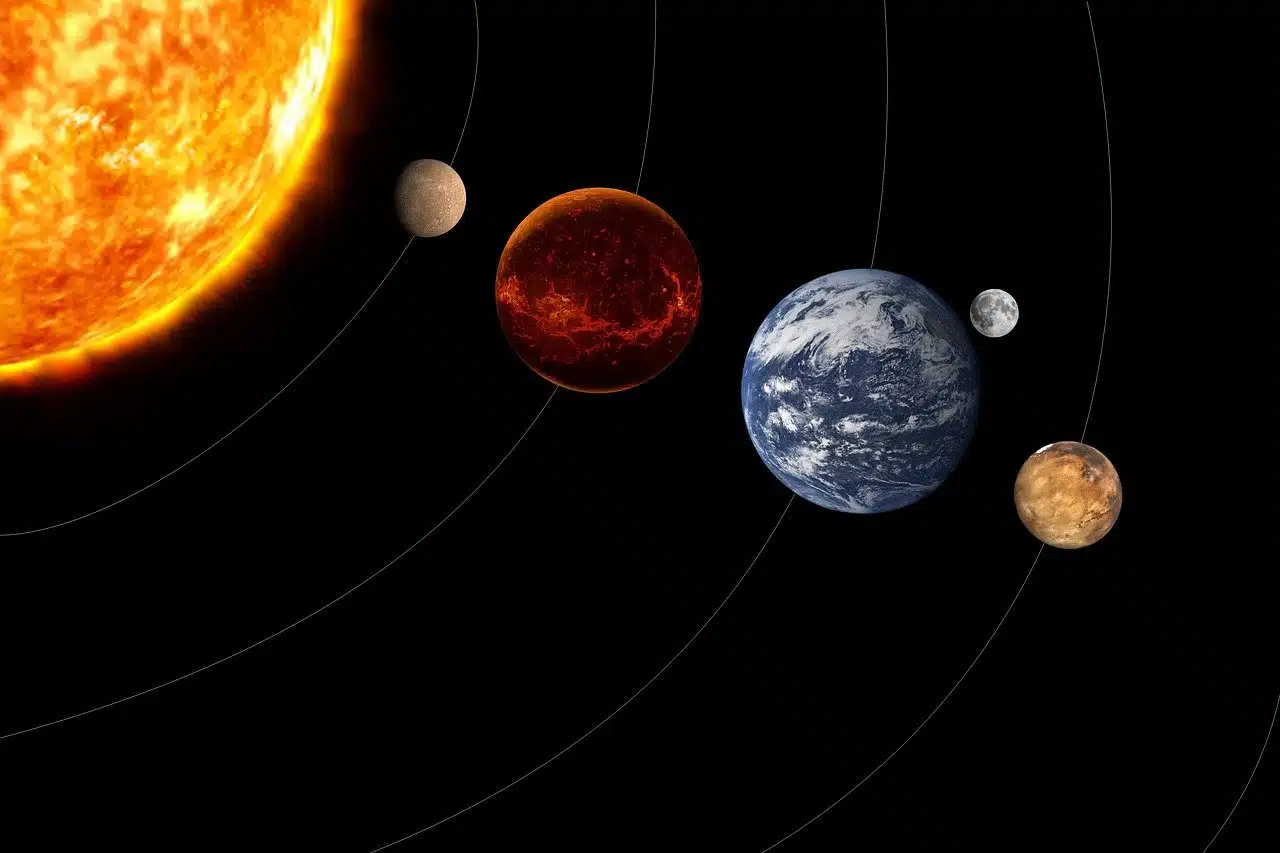
A conjunction is a union or joint.
A conjunction is a joint or union . Coming from the Latin coniunctĭo , this Latin word is made up of three clearly delimited parts: the prefix con- , which is synonymous with "completely" ; the word iugum , which is equivalent to "yoke" ; and finally the suffix -ción , which can be translated as "action and effect" .
The term is used in astronomy and linguistics , among other areas. For example: "Astronomers reported that tomorrow the conjunction between Mercury and Venus will occur" , "I have to explain what a coordinating conjunction is" , "The teacher said that next term we will study conjunctions" .
astronomical conjunction
An astronomical conjunction is the relative position of two or more stars when, from a point of observation, they are aligned. The concept is also used to name the aspect of two stars that occupy the same celestial house.
It is possible to speak of inferior conjunction or superior conjunction . The inferior conjunction takes place when the planets inside the Earth's orbit pass between the Earth and the Sun , which causes these planets to be close to the Earth and display their unilluminated side.
The superior conjunction, on the other hand, occurs when the Sun is between the inner planets and the Earth . In this case, the planets reach their maximum distance from Earth .

An astronomical conjunction means that. From a specific observation point, two or more stars align.
The concept in grammar
A grammatical conjunction , for its part, is an invariable word that heads a subordinate clause or that joins syntactically equivalent sequences or words. A conjunction links words, phrases or propositions.
Specifically, we would have to determine that there are two large groups of conjunctions. On the one hand, there are the coordinating ones and on the other, the subordinate ones.
Among the most important types of conjunctions within the grammatical field are the following:
- Adversarial , which is one that makes clear a confrontation or difference between the two sentences. Examples are "however" , "but" , "nevertheless" , "except" ...
- Comparison . It is the one that, as its name indicates, is used to compare both phrases. In your case, we would have to underline "as" .
- Conditional , which is the conjunction that makes clear a condition that must occur for a consequence to take place. An example of this type is "if" .
- Copulative , which we can say that adds the two sentences. In this case, there are four types of conjunctions: "and" , "e" , "nor" and "that" .
- Disjunctive , which is what expresses the contrast of two phrases or the alternation or exclusion of one of them. There are two: "o" and "u" .
"To the", "by", "for", "so", "despite the fact that" y "but" son otros ejemplos de conjunciones: "When the sun goes down, vampires come out of their caves", «You are not going to train with us because you are late», "We are here to help", «The decision has been made so don't insist», «Even though you made a mistake, you will have another chance», «It was not Ricardo who hit Juan, but Pedro».
Conjunction in mathematics
To all this we would have to add that the term in question is also used in mathematics.
In your case, there is what is known as a logical conjunction , which makes it clear that an operator is true if the two operators are also true.
